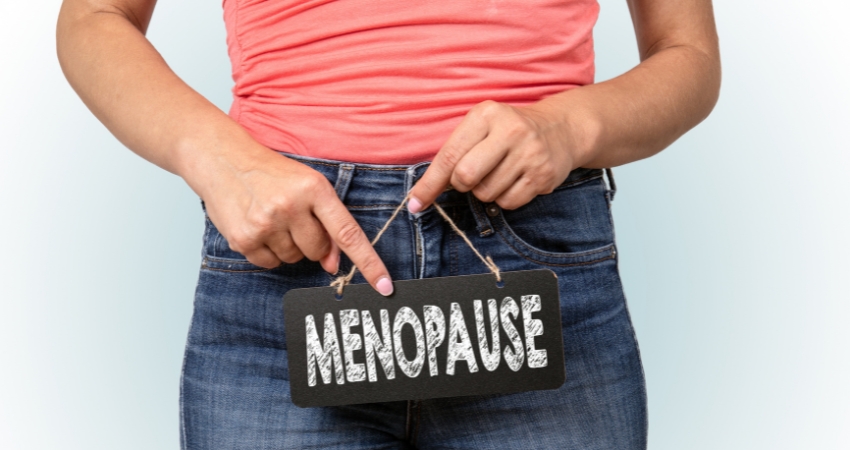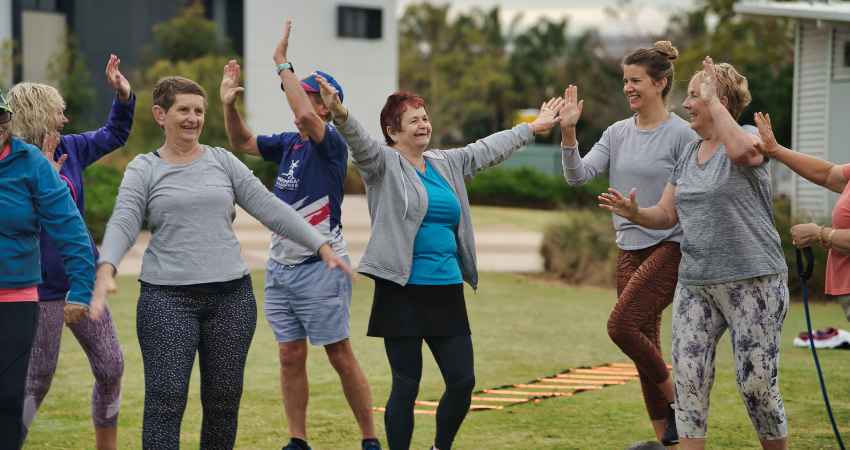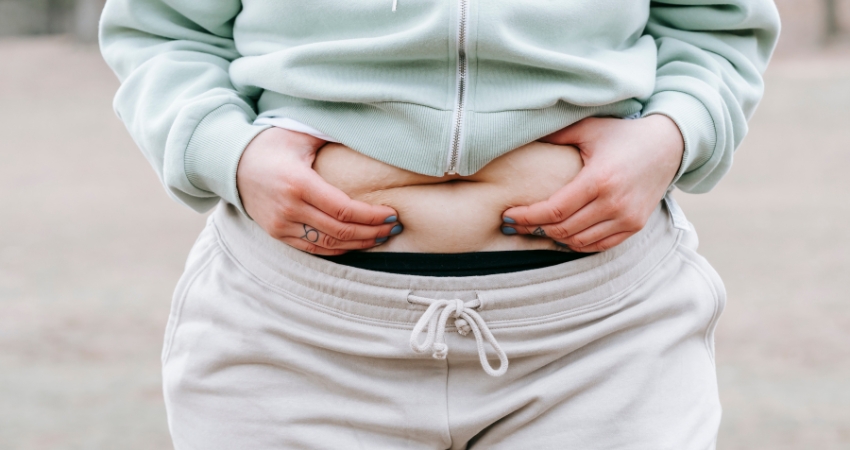The Truth About Weight Gain During Menopause

The Menopause-Metabolic Rate Connection
Firstly, it’s important to understand that menopause and metabolic rate are directly linked. Our metabolic rate, or the number of calories we burn at rest, decreases as we age. This is because muscle mass naturally declines, and muscle tissue burns more calories than fat tissue.
Plus, hormonal changes during menopause can also cause weight gain. So, if you’re feeling frustrated about your slowing metabolism and fluctuating weight, don’t worry. You’re not alone.
Muscle Matters: Building Strength for a Healthier You
When we’re in our 30s and 40s, we tend to be more active, which helps to maintain our muscle mass and keep our metabolic rate high. However, as we age and our activity levels decrease, our muscle mass declines, and our metabolic rate drops. This means that we burn fewer calories at rest, and if we continue to eat the same number of calories, we will start to gain weight.
So what can we do about it? One of the most effective ways to combat weight gain during menopause is to build muscle mass. Resistance training, such as weightlifting, is an excellent way to build muscle and increase your metabolic rate. You don’t have to be a bodybuilder to benefit from strength training. Even simple exercises like push-ups, squats, and lunges can be effective.
The Power of Walking for Weight Management
Walking is also a great way to stay active and maintain your weight. Walking is low-impact and easy to do, making it the perfect exercise for women going through menopause. Aim for at least 30 minutes of moderate-intensity walking each day.
H2O: The Importance of Staying Hydrated
Hydration is also crucial for maintaining a healthy weight. Drinking plenty of water can help flush toxins out of your body, reduce bloating, and keep your metabolism running smoothly. Drink at least eight glasses of water daily, and avoid sugary drinks like soda and fruit juice.
Small Meals = Big Benefits
Eating smaller meals more often can also help maintain weight during menopause. Smaller, frequent meals keep your metabolism revved up and prevent overeating. Aim for five to six small meals daily, and include plenty of protein and fibre in your diet.
Move More, Sit Less
As mentioned earlier, slowing down can be beneficial in some ways, but staying active is crucial for maintaining a healthy weight. Incorporate more physical activity into your daily routine, whether taking the stairs instead of the elevator, doing household chores, going for a bike ride with friends or joining an on-demand video with a friend.
Fighting the Meno Belly
One of the most frustrating aspects of weight gain during menopause is the “meno belly,” or the stubborn belly fat that seems impossible to lose. To avoid this, focusing on building muscle mass and maintaining a healthy weight is essential. Eating a diet rich in lean protein, healthy fats, and fibre can also help prevent belly fat. Minimise or avoid processed foods, sugary snacks, and fried foods, as these can contribute to weight gain.
Wrapping It Up
Weight gain during menopause is a natural part of the ageing process. However, it’s not something that you have to resign yourself to. By building muscle mass, staying active, and maintaining a healthy diet, you can prevent weight gain and maintain a healthy weight during menopause. Remember that everyone’s body is different, and what works for one person may not work for another. Be patient, stay consistent, and seek advice from a healthcare professional if you have any concerns.








